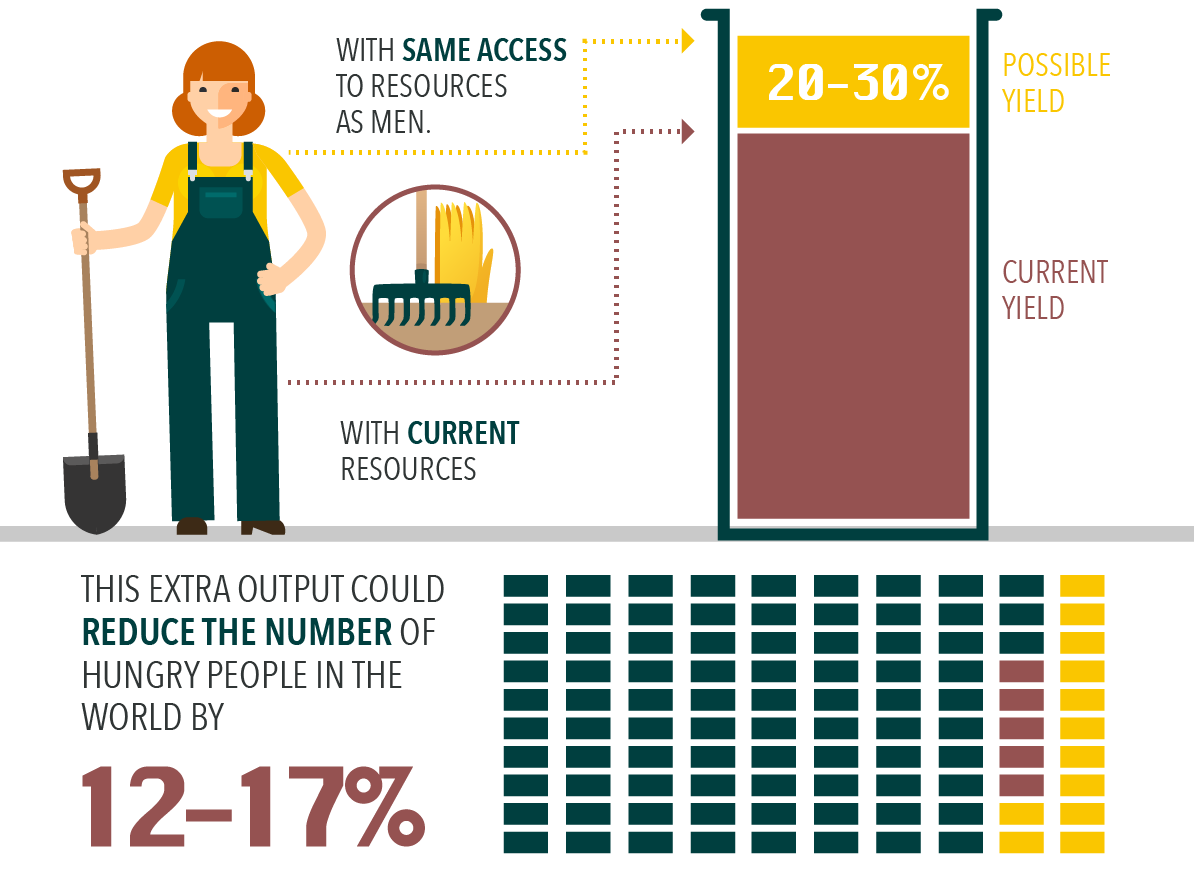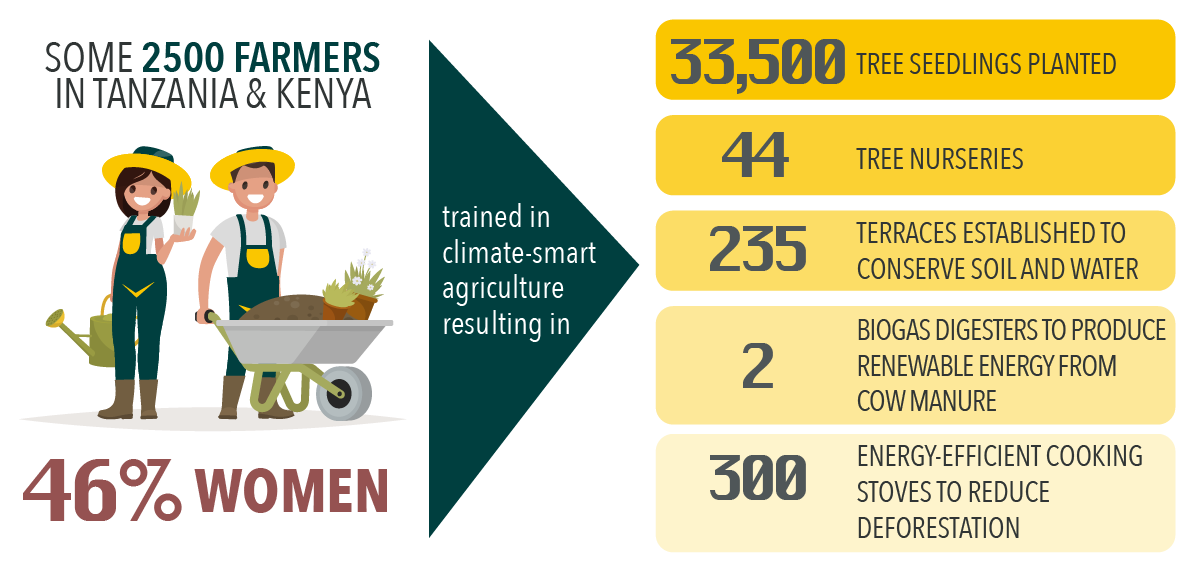“If all women in rural areas had the same access to land, technology, financial services, education and markets as men, they could increase agricultural production and reduce the number of hungry people”
Mlambo-Ngcuka, Executive Director of UN Women
Women residing in rural areas of the world play a critical role in ensuring both food and social security for their families and communities. Although rural women make up 25 percent of the world’s population and 43 percent of the agricultural labor force in developing countries, they represent the largest source of untapped potential, as they continue to have limited access to land and productive resources.

As the world continues to make progress towards gender parity and women’s empowerment, agriculture, a traditionally male-dominated industry, needs to evolve and adapt to this changing environment by transforming its traditional principles in order to unlock growth through gender equality.
This transformation includes climate-smart agriculture (CSA), a term defined and presented by the Food and Agriculture Organization (FAO) in 2010. CSA contributes to the achievement of sustainable development goals as it integrates the three dimensions of sustainable development – economic, social and environmental – by jointly addressing food security and climate challenges.
This new trend in agriculture was highlighted at the sixty-second edition of the Commission on the Status of Women (CSW62), which took place earlier this month. The Commission gathered representatives of the Member States, UN entities, and ECOSOC-accredited non-governmental organizations (NGOs) to discuss the challenges and opportunities of achieving gender equality, the empowerment of rural women across the globe and how CSA can help achieve these goals by granting women access to land, information and technologies. UN Secretary-General Antonio Guterres highlighted that achieving gender equality and the empowerment of women in rural areas is directly linked to achieving other UN Sustainable Development Goals as well.
The CSW62 introduced concrete actions that contribute to guaranteeing the rights of rural women. These actions include managing the impact of international investment and trade rules that advance rural women’s smallholder agricultural production, food security and nutrition — especially given that 76 percent of the world’s poorest people live in rural areas and are vulnerable to growing stress on water and land use.
During CSW62, UN Women Deputy Executive Director Yannick Glemarec emphasized the importance of access to technologies and land for women, stating that in the absence of closing the gender gap in the agricultural sector and in the context of climate change, female farmers are at risk of being caught in a downward spiral.
The Farming and Agriculture Organization of the United Nations (FAO) has tracked success stories in different countries such as Tanzania and Kenya, where female farmers were trained in CSA, and in India, where equal opportunities helped women obtain access to land and resources.

The world is calling on every player in the international arena to address the limitations that women face to access social services, infrastructure, energy, technology and information. Primal is joining this global effort by enhancing the potential of women and girls across our projects. We are promoting their human rights and reinforcing their role in the local communities we work, with the endorsement of the United Nation’s Sustainable Development Goals number 5 (Gender Equality), 8 (Decent Work and Economic Growth), 10 (Reduced Inequalities) and 17 (Partnerships for the Goals). One of our main goals is to eliminate the structural barriers that deter women from achieving leadership and decision-making positions in local, regional and international spheres in a fundamental industry for human life – agriculture.
Learn more about Primal’s commitment to the UN Global Compact including the empowerment of women by reading our 2017 Communication on Progress Report